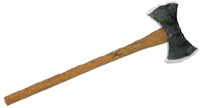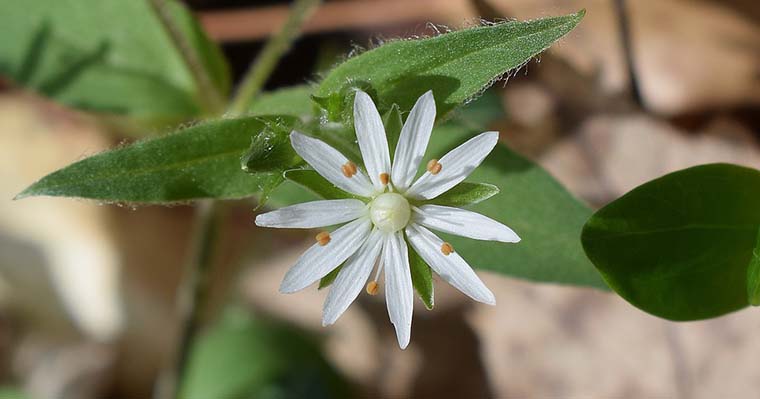Chickweed (Stellaria media) is a common weed found in Texas and the surrounding Southern states.
While native to Europe, chickweed has since been introduced into the United States where it’s become a nuisance for countless homeowners.
A type of annual – a plant that completes its life cycle in one year – chickweed typically doesn’t stay long.
Nonetheless, it can quickly take over your lawn if you aren’t careful. So, how can you control chickweed in your lawn?
#1) Mow and Bag Grass Clippings
Mowing your lawn regularly, as well as bagging the grass clippings, will discourage chickweed from growing. When you move your mow, you’ll remove all foliage at the respective blade height of your lawnmower, including chickweed.
#2) Don’t Aerate Your Lawn
If you’re struggling control chickweed, don’t aerate your lawn. Like other annuals, chickweed reproduces by spreading a dense layer of small seeds before dying in the fall or winter months.
The problem with aerating is that it buries these seeds deep into the soil where they’re able to germinate in the warmer months of spring.
#3) Pull Before Flowering
Shortly before it flowers – around mid- to late spring – pull chickweed from the soil. Chickweed has relatively shallow roots, allowing you to easily pull it out. If you’re dealing with a lot of chickweed, you can use a handheld weed puller tool instead.
#4) Use an Herbicide
You can use an herbicide to eliminate chickweed in your lawn. Of course, the problem with using an herbicide is that it will likely affect all plants and grasses on which it’s applied.
If you’re going to use an herbicide, test it in a small area of your lawn affected by chickweed first.
Assuming it doesn’t kill your “good” plants and grasses, you can proceed to use elsewhere on invasive chickweed.
#5) Wait It Out
Chickweed will eventually go away, so another option is to simply wait it out. You can expect most chickweed to die during the first cold snap after summer. As the temperature gets cooler, chickweed will turn brown and die.
#6) Chickens Can Kill Chickweed, Too
While not an option for all homeowners, chickens are highly effective at keeping chickweed in check. If you own chickens, consider guiding them to your chickweed to see if they’ll eat it. Not only will this clear out the pesky weed from your lawn; it will nourish your chickens with essential nutrients.
The Woodsman Company offers tree planting, tree pruning and shrub trimming, tree removal and stump grinding as well as a tree wellness program.
If we can help with any of your tree care needs give us a call at 512-846-2535 or 512-940-0799 or

